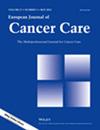Impact of Early Chemotherapy Resumption on the Outcome after Staphylococcus aureus Bacteremia in Patients with Solid Tumors: A Retrospective Study in a Single Tertiary Cancer Center in Japan
Abstract
Objective. Staphylococcus aureus bacteremia (SAB) in patients with solid tumors poses a dilemma between infection control and cancer treatment. We aimed to explore whether early resumption of chemotherapy yielded unfavorable outcomes in oncologic patients with SAB. Methods. We retrospectively reviewed patients who received chemotherapy within 90 days of SAB onset from 2011 to 2020. We divided patients who resumed chemotherapy into two groups by the median time from the negative blood culture to the chemotherapy resumption. We investigated the association with treatment failure, which included recurrence after completion of SAB treatment, relapse during antibiotics therapy, 90-day all-cause mortality after initiation of antibiotics, and 30-day all-cause mortality after the resumption of chemotherapy. Results. Among the 78 eligible patients, 36 patients resumed chemotherapy. The median interval to the chemotherapy resumption was 17.5 days. Two patients in the early resumption group and one in the late resumption group died within 90 days after initiating antibiotics. One patient in the early resumption group experienced SAB recurrence. None of the patients experienced SAB relapse or died within 30 days of resuming chemotherapy. Conclusion. Early resumption of chemotherapy may not be directly associated with unfavorable outcomes in oncological patients with SAB under appropriate infection management.


 求助内容:
求助内容: 应助结果提醒方式:
应助结果提醒方式:


